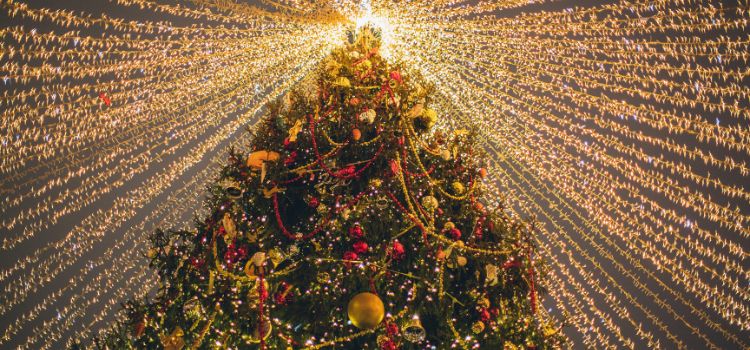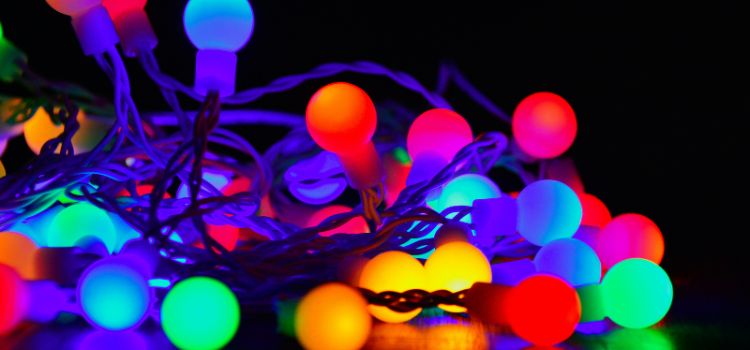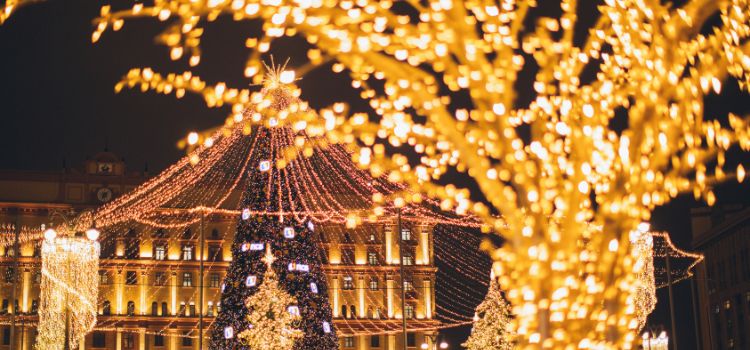A Comprehensive Guide
The outside lights are designed to withstand the elements, including precipitation, snow, and wind. Notwithstanding, it means a lot to play it safe to shield them from the elements and draw out their life expectancy. Weather-resistant materials, such as plastic or metal, comprise most outdoor lights. However, it is still essential to avoid directly soaking them in water. This can damage the electrical components and shorten the light’s lifespan.
Consistently cleaning open-air lights exposed to the elements is wise. This will assist with eliminating any soil or flotsam and jetsam that could develop and impede the light result. It is likewise brilliant to examine the lights consistently for any indications of harm.
If you notice any damage to your outdoor lights, it is crucial to repair them or replace them as soon as possible. This will assist with forestalling further harm and broaden the lights’ life expectancy.

Can Outdoor Lights Be in the Rain?
Designers create most outdoor lights to withstand rain, but you must check the IP rating of your lights to be sure. The worldwide standard demonstrates how well an item safeguards against dust and water through IP evaluations. You want a rating of IP65 or higher for outdoor lights getting wet. The lights have protection against water jets from all directions and dust.
Even if your lights have a high IP rating, taking precautions to protect them from rain and moisture is still a good idea. For example, you can install your lights under an overhang or cover to shield them from direct rainfall. Inspecting your lights regularly for any signs of damage, such as cracks or loose connections, would be best.
If you’re unsure whether your outdoor lights are waterproof, it’s always best to err on caution and take them down during heavy rain or storms.
What types of outdoor lights can get wet?
Most garden lights can withstand moisture, but checking the IP rating is essential. The IP rating informs you about the light’s protection against dust and water. Look for lights with an IP rating of at least IP44 for outdoor use.
Some outdoor lights that can get wet are illustrated in the following examples:
- Solar lights: Sealed units that are virtually waterproof comprise solar lights.
- String lights: Most string lights are water-resistant, but checking the
manufacturer’s instructions is essential.
- Pathway lights: Durable materials that can withstand moisture typically make pathway lights.
- Spotlights: Spotlights can illuminate walkways, gardens, and other outdoor spaces. Most spotlights are water-resistant, but choosing a model with a high IP rating is essential if you live in a rainy climate.
- Floodlights: Floodlights often illuminate large areas, such as driveways and patios. Most floodlights are weatherproof and can withstand rain, snow, and other harsh weather conditions.
What happens if light bulbs get wet?
Do not expose light bulbs to water, as it can cause several problems, including:
- Electrical shock: Water is a transmitter of power, so on the off chance that water gets into a light attachment, it can make a gamble of electric shock.
- Short circuit: Water can also cause a short course in a light bulb socket, which can damage the wiring and cause a fire.
- Bulb failure: Even if water does not cause a short circuit, it can still damage the light bulb and shorten its lifespan.
How to Protect Your Outdoor Lights
Outdoor lights can be a beautiful and functional addition to your home, but they can also be susceptible to damage from the elements. Here are some tips on how to protect your outdoor lights and prevent getting wet:
- Choose the right location: Avoid placing lights in areas exposed to direct sunlight, rain, or snow. Instead, choose sites that overhangs or trees shelter.
- Use outdoor-rated fixtures and bulbs: The designers have created these fixtures and bulbs to withstand harsh weather conditions.
- Install light shields: Light shields can help to protect your institutions from moisture and debris.
- Inspect your lights regularly: Search for any indications of harm or mileage. Repair or replace any damaged lights immediately.
Are All Outdoor Lights Waterproof?
Not all outdoor lights are waterproof. Some lights, designed exclusively for indoor use, can sustain damage from moisture. While picking outside lights, it’s vital to check the IP rating. The IP rating is a worldwide standard demonstrating security against residue and water. It would be best to look for an IP rating of at least IP65 for outdoor lights. In this case, the light receives protection from dust and water jets coming from all directions. If you anticipate exposing the lights to more severe weather conditions, such as heavy rain or snow, you should look for an IP rating of IP66 or IP67.
To ensure your outdoor lights are waterproof, installing them properly is also essential. In English, please ensure that direct water spray does not expose the lights and that you seal the electrical connections.
FAQs
Question: What is the IP rating of outdoor lights?
The IP rating of outdoor lights indicates how well they protect against dust and water. The primary number in the IP rating alludes to tidy security, while the second alludes to water assurance. For outdoor lights, you should look for a rating of IP43 or higher. In this case, the lights safeguard against splashing water from any direction.
Question: Can I use outdoor lights in the rain?
Most outdoor lights can function in the rain. However, it is essential to check the manufacturer’s instructions. Manufacturers may not design some lights to withstand heavy rain or prolonged exposure to water.
Question: Can I use outdoor lights in the snow?
In the snow, you can also use most outdoor lights. However, clearing any snow or ice from the lights is vital to prevent them from overheating.
Question: What should I do if moisture gets on my outdoor lights?
If your outdoor lights get wet, dry them with a clean cloth. Please inspect any electrical connections to ensure they are dry before reusing the lights.
Question: How can I protect my outdoor lights from water damage?
There are a few things you can do to protect your outdoor lights from water damage:
- Install the lights in a sheltered location, such as under an awning or overhang.
- Use a sealant to protect the electrical connections from moisture.
- Clean the lights regularly to remove any dirt or debris that could accumulate and block the drainage holes.

Conclusion
Some outdoor lights are designed to withstand rain, snow, and other harsh weather conditions while being weatherproof. Others are not weatherproof and may need protection from the elements.
If you are still determining whether or not your outdoor lights are weatherproof, it is best to err on the side of caution and take steps to protect them from the rain. You can cover them with a tarp or awning or under an overhang. Inspecting your lights regularly for signs of damage, such as corrosion or cracks, would be best.
If you notice any damage to your outdoor lights, it is essential to repair or replace them immediately. This will assist with forestalling further harm and guarantee that your light’s capability is accurate.

